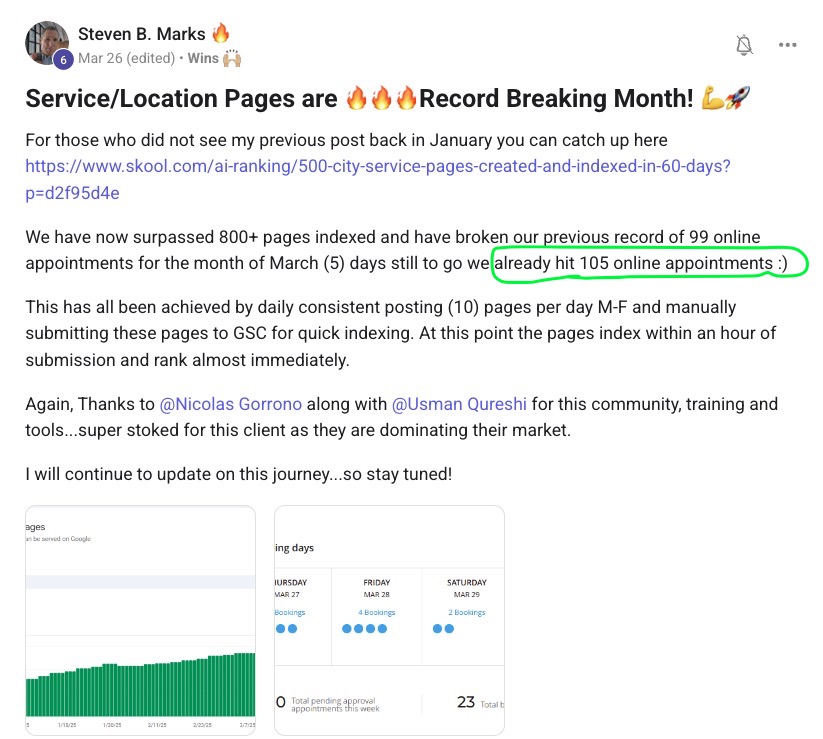
If you have been hunting for an SEO guide for investment managers, you are already on the right track. The truth is, your clients and prospects are increasingly turning to search engines for financial guidance. In fact, 87% of consumers research financial advisors online before making contact (AI Rankings Kool). If you ignore this trend, good luck getting anywhere in a crowded market. Do not get me wrong—if you leverage some key strategies, you can elevate your practice above the noise.
Recognize SEO's value
Search engine optimization (SEO) is not just a buzzword; it is a proven method to connect with people who genuinely need your expertise. About 60% of marketers say inbound channels, including SEO and blogging, provide their highest-quality leads (Cone Blog). When you optimize for the right keywords, your website appears for individuals actively searching for financial planning or investment management help.
- Create content that addresses specific financial topics (tax planning, portfolio management, retirement advice).
- Ensure your site is structured logically so people and search engines can easily find information.
- Emphasize user experience with a clean design and intuitive navigation.
Optimize on-page elements
Your website might look polished, but search engines also need to understand it. Here are some essentials:
- Keywords: Use straightforward, descriptive keywords that reflect the help you offer. Include phrases like “investment management strategies” or “financial advisor tips” in titles and headings.
- Meta tags: Write clear meta descriptions to entice clicks from search results.
- Mobile responsiveness: Do not forget that search engines prioritize mobile-friendly websites.
You can also perform an SEO audit for financial advisors to ensure you have not missed any technical details, such as broken links or slow loading pages.
Focus on local reach
Local SEO can give you a sizeable competitive edge. After all, you want to appear in local results when someone in your area searches for “investment manager near me.”
- Claim and update your Google Business profile.
- Encourage satisfied clients to leave reviews.
- Incorporate location-based keywords, like “retirement planning in Dallas,” into your site or blog content.
If you want a more in-depth approach, consider exploring local SEO for financial advisors. By zeroing in on your region, you will beat out generalist national sites every time someone in your locale looks for a specific financial service.
Build authority with backlinks
The truth is, your online credibility skyrockets when reputable sites link to you. Think of it as a vote of confidence from other industry leaders. Earning high-quality links—such as from finance blogs or news outlets—tells search engines that your content is trustworthy. If you skip this step, good luck getting anywhere in search rankings.
- Contribute guest articles to well-known finance publications.
- Offer expert quotes or insights to journalists (using platforms like HARO or Featured.com).
- Create compelling resources—like insightful calculators or whitepapers—that others want to reference.
When you are ready to get serious about this strategy, check out backlinks for financial advisors. Building genuine authority goes beyond stuffing your site with any old link. You want long-term credibility that actually benefits your potential clients.
Use helpful SEO tools
A well-rounded SEO toolkit can help you identify quick wins and measure your progress. Popular platforms like SEMrush, Ahrefs, and Moz zero in on keywords and backlink profiles, while Google Analytics and Google Search Console track website performance.
- SEMrush and Ahrefs: Research your competitors’ strategies and uncover new keywords.
- Google Search Console: Monitor how search engines crawl your site.
- Google Analytics: See what pages get traffic and how visitors behave.
You can explore more options at SEO tools for financial advisors. Just remember, tools are cool and all, but not that useful if you do not apply what you learn.
Measure your results
Analyzing your data keeps you from flying blind. Without tracking the numbers—like which pages rank highest, which keywords drive leads, or how long visitors stay on your site—you will not know what works or what needs tweaking.
- Observe bounce rates: High bounce rates might reveal irrelevant content or slow load times.
- Track conversions: Whether that is newsletter sign-ups or direct appointment requests, focus on actions that matter to your practice.
- Watch keyword rankings: Keep an eye on shifts in your position for the terms you target.
If you need more nitty-gritty tips, feel free to dip into search engine optimization tips for financial advisors. It is all about constantly refining your strategy based on real data.
Ultimately, SEO is a long-term investment that, done correctly, can place you firmly on the radar of your ideal clients. As you refine your site, build backlinks, and measure results, you will create a virtuous cycle of visibility and trust. After all, there is a reason potential clients are using search engines to find a good advisor. You have got the expertise. Now let them see it.



.webp)



